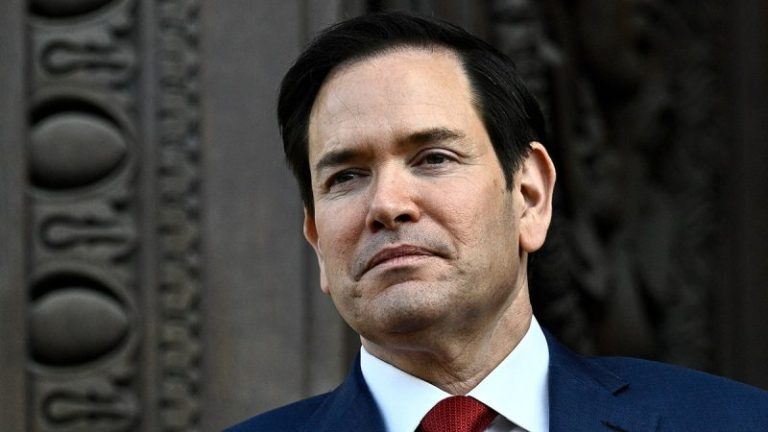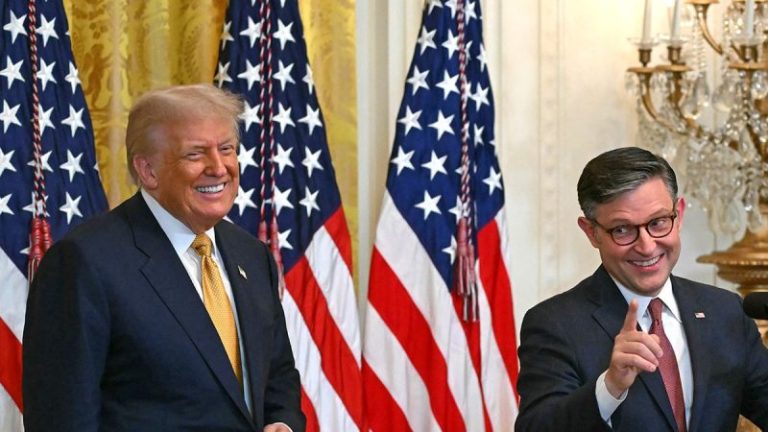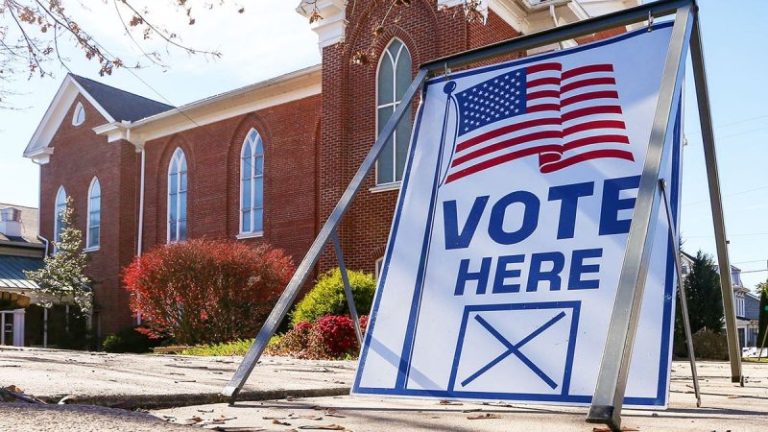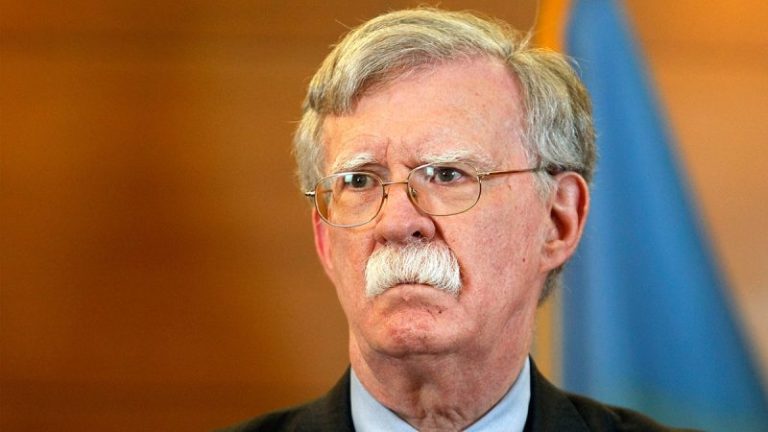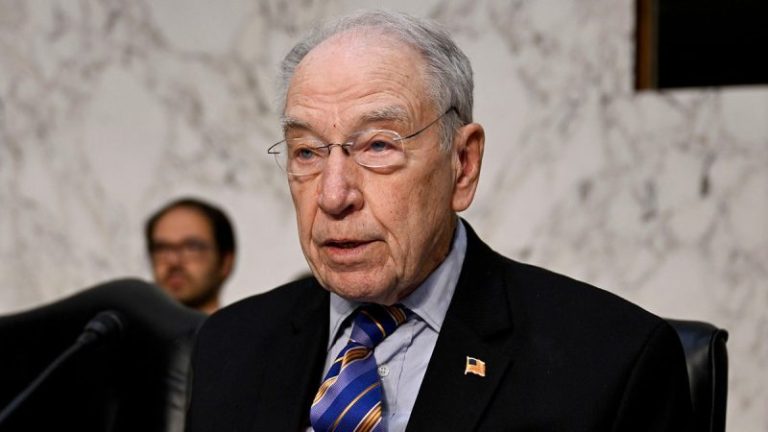An upcoming iPhone update is raising alarms among Republican fundraisers who say a new text filtration system set to hit the market in September will disproportionately block conservative fundraising and voter outreach efforts, echoing past Big Tech controversies that put a target on the backs of GOP voters.
‘It’s no surprise that Big Tech wants to stop Donald Trump and other Republicans from communicating with people, because they’ve tried every other method to interfere already,’ Sean Dollman, founding partner of American Made Media Company, the parent company of Launchpad Strategies, which was the exclusive digital firm for Trump 2024, told Fox News Digital.
‘Big Tech has suppressed him, suspended him, and banned him outright. And now they’re trying to make it so he can’t text anybody either. But MAGA won’t be stopped, and MAGA will always find a way.’
Apple is expected to roll out its latest update, iOS 26, in September, which will include an updated text filtration system that siphons text messages from unknown numbers that have no chat history with the recipient to a separate message folder that will not generate an alert to the recipient, leaders from American Made Media Company and Launchpad explained to Fox News Digital of the upcoming update. Text messages from known numbers saved on an individual’s phone are expected to continue alerting recipients and sending the messages to their typical text app.
Launchpad Strategies served as the Trump 2024 campaign’s exclusive digital firm handling online advertising and consulting during Trump’s decisive victory over former Vice President Kamala Harris, and continues operating as a ‘full-service Republican digital agency dedicated to helping campaigns win,’ according to its website.
Launchpad raised $509 million for the Trump campaign in 2024 and an additional $18 million in funds from 40 other clients during the massive 2024 election year, Fox Digital learned.
The update could affect election cycles themselves, as text messages concerning voter registration and campaign rallies are expected to also be punted to this new folder, according to fundraisers.
Data from the 2024 election cycle showed Republicans leveraged text campaigns two-to-one compared to Democrats, putting them directly in the line of fire when the expected update takes effect in September — ahead of the midterms hitting a fever pitch as Democrats look to flip the House and Senate from Republican control.
The text filtration’s scope is expected to extend far beyond just politics, including potentially siphoning texts concerning real-life issues such as doctor appointments from a number not saved in a person’s phone.
The National Republican Senate Committee, which serves as the Senate Republican’s campaigning arm, circulated an internal memo in July sounding the alarm that the iOS update could cost Republicans more than $25 million in revenue, Punchbowl News reported at the time.
Apple filtering texts from unknown numbers is not new, with such a program already used within the current iOS 18 systems. The current filtration system is by default not activated until a user toggles a button within the ‘settings’ app.
The iOS 26 update is also currently available to the public for beta testing, the outlet Fast Company reported in July.
Under the new update, the filtration system will be renamed to ‘Screen Unknown Senders,’ but will use ongoing criteria to kick text messages to another folder, specifically: if the iPhone owner does not have a contact saved in their phone and if the user has never interacted with the unknown phone number trying to contact them, according to Fast Company.
The visibility of the texts from unknown senders will get a facelift under the new update, with the filtered messages from unknown senders made more easily seen by users with a new filtration button at the top of Apple’s Messages app that will display a blue badge noting how many unread texts an iPhone user has received from unknown numbers, according to the Fast Company report, which sought to quell Republican fundraising concerns over the update.
Fox News Digital reached out to Apple for comment on Monday.
History repeating itself is of top concern to Republican fundraisers, who pointed to a seemingly similar filtration system with Gmail messages that first hit the public’s radar in 2022. Studies at the time found Gmail allowed the vast majority of emails from left-wing politicians to land in a user’s inbox, while more than two-thirds of messages from conservative candidates were marked as spam, according to data from North Carolina State University’s Department of Computer Science that was previously reported by Fox News Digital.
The Gmail filtration system resulted in a $2 billion loss for Republican candidates between 2019 and 2022, Fox News Digital reported in April 2022 citing research from the Republican National Committee, National Republican Congressional Committee, National Republican Senate Committee.
‘Big Tech has been silencing conservative voices and actively working against Republicans for multiple cycles. Google’s e-mail suppression – which affects the GOP’s fundraising and GOTV efforts – is another egregious example. Silicon Valley oligarchs are suppressing free political speech,’ then-RNC Chairwoman Ronna McDaniel, then-NRSC Chairman Senator Rick Scott and then-NRCC Chairman Congressman Tom Emmer said in a joint statement back in 2022, Fox News Digital reported at the time.
The research found that between 2019 and 2020, conservative candidates raised $737 million on Republican fundraising platform WinRed from Gmail. The data found that just 32% of fundraising emails actually reached recipients, with Republicans estimating they missed out on $1.5 billion in contributions during the 2020 election cycle alone.
The update comes as the Democrat Party is in turmoil following the 2024 race, which saw former President Biden drop out of the election cycle with just over 100 days to go before passing the proverbial mantle to Vice President Kamala Harris before the loss to Trump. The party has since attempted to find its political footing after an exodus of the working-class vote to the GOP in 2024 and voters rejecting left-wing policies, most notably surrounding social issues.
Republican fundraisers are already working on workarounds for the expected update, including having recipients add fundraising numbers to their phones.
Screenshots of fundraising text messages reviewed by Fox News Digital in 2025 show texts touting Trump’s name, accompanied by messages that ask recipients to add the number to their contacts or respond to the text to build a chat history.
The texts include messages such as, ‘From Trump: Did you save my number yet?’ or ‘Download the Trump Contact Card to add me to your address book’ or other interactive texts such as, ‘Trump: If you had 5 minutes with me, what would you say? No links. I just want your reply below.’
This post appeared first on FOX NEWS

